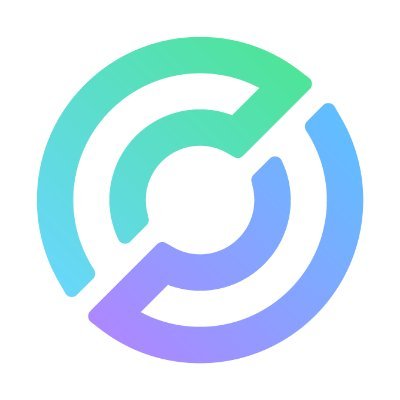مقارنة Circle Wallet مع CoinSpot Wallet Wallet
In today's digital market, the trend of cryptocurrency has flooded the financial sector. With thousands of crypto coins available for trade, the necessity of a safe and secure digital wallet has gained paramount importance. The article will delve into a comparison between two major crypto-wallets - Circle Wallet and CoinSpot Wallet, to assist users in making an informed choice.
| Company | ||
|---|---|---|
| User rating | 5 user review | 16 user review |
| Cryptogeek rating | ||
| Trust Score How it works |
About
|
دائرة هو وسيلة سهلة لاستخدام المحفظة توفير فرصة لشراء ونقل وتوفير المال الرقمي. كان الاسم الكامل للتطبيق Circle Invest wallet. يمكن العثور على نسخته المحمولة على Google Play و Apple Store.
|
محفظة Coinspot هي خدمة خاصة تقدمها Coisnpot exchange. يوفر محفظة ساخنة لكل عملة يتم تداول البورصة حاليا. جنبا إلى جنب مع التشفير ، فإنه يدعم أيضا الدولار الأسترالي. حاليا ، تحتوي محفظة CoinSpot على أكثر من 60 قطعة نقدية ورموز. التبادل المدمج هو ميزة إضافية للمحفظة بالإضافة إلى 2FA لمزيد من الأمان. اللغة الوحيدة المتاحة هي اللغة الإنجليزية.
|
Founding Date
| 2013 | 2013 |
Country
| USA | Australia |
Languages
| English | English |
Wallet type
| Software wallet | Software wallet |
Storage type
| Cold wallet | Hot wallet |
Private keys
| Not available | Not available |
Available coins
| 6 - Bitcoin (BTC), USD Coin (USDC), Ethereum (ETH), Stellar (XLM), Algorand (ALGO), Solana (SOL) | 149 - Bitcoin (BTC), Basic Attention Token (BAT), IOTA (MIOTA), Tezos (XTZ), Ethereum Classic (ETC), NEO (NEO), VeChain (VET), OmiseGO (OMG), Qtum (QTUM), Verge (XVG), Lisk (LSK), ICON (ICX), Ontology (ONT), Bitcoin Gold (BTG), Zcash (ZEC), Nano (NANO), Populous (PPT), Bytecoin (BCN), Steem (STEEM), Wanchain (WAN), Siacoin (SC), Dogecoin (DOGE), Waves (WAVES), Zilliqa (ZIL), Decred (DCR), Aeternity (AE), Status (SNT), 0x (ZRX), Loopring (LRC), Komodo (KMD), Aion (AION), Golem (GNT), Ardor (ARDR), IOST (IOST), DigiByte (DGB), Ark (ARK), Waltonchain (WTC), aelf (ELF), PIVX (PIVX), Factom (FCT), Dragonchain (DRGN), Substratum (SUB), Mithril (MITH), Syscoin (SYS), Gas (GAS), Elastos (ELA), Voyager Token (VGX), FunFair (FUN), Nxt (NXT), Nebulas (NAS), Nucleus Vision (NCASH), OByte (GBYTE), ReddCoin (RDD), Revain (REV), WAX (WAX), SALT (SALT), Electroneum (ETN), MaidSafeCoin (MAID), Power Ledger (POWR), Zcoin (XZC), Enigma (ENG), Storj (STORJ), TenX (PAY), Neblio (NEBL), Cindicator (CND), Skycoin (SKY), Horizen (ZEN), Civic (CVC), SingularityNET (AGI), POA Network (POA), Nexus (NXS), GameCredits (GAME), Dent (DENT), Vertcoin (VTC), Quantstamp (QSP), iExec RLC (RLC), Decentraland (MANA), Polymath (POLY), Po.et (POE), Loom Network (LOOM), NULS (NULS), Enjin Coin (ENJ), Raiden Network Token (RDN), Metal (MTL), Arcblock (ABT), Pundi X (NPXS), SIRIN LABS Token (SRN), Bluzelle (BLZ), Genesis Vision (GVT), THETA (THETA), NavCoin (NAV), Gifto (GTO), Comet (CMT), AirSwap (AST), OST (OST), Scry.info (DDD), Ripio Credit Network (RCN), Streamr DATAcoin (DATA), Quantum Resistant Ledger (QRL), AdEx (ADX), UTRUST (UTK), Einsteinium (EMC2), Ambrosus (AMB), Groestlcoin (GRS), WePower (WPR), Peercoin (PPC), Crypterium (CRPT), USD Coin (USDC), Ripple (XRP), Binance Coin (BNB), Bitcoin Cash (BCH), Bitcoin SV (BSV), Cardano (ADA), Cosmos (ATOM), Dash (DASH), EOS (EOS), Ethereum (ETH), Litecoin (LTC), Monero (XMR), NEM (XEM), Stellar (XLM), Tether (USDT), Tron (TRX), Polkadot (DOT), BitTorrent (BTT), Terra (LUNA), pTokens BTC (PBTC), Crypto.com Coin (CRO), Filecoin (FIL), FTX Token (FTT), Kusama (KSM), Algorand (ALGO), NEAR Protocol (NEAR), Ocean Protocol (OCEAN), Celo (CELO), Energy Web Token (EWT), Quant (QNT), Hedera Hashgraph (HBAR), Solana (SOL), Helium (HNT), IoTeX (IOTX), TomoChain (TOMO), Chiliz (CHZ), Ankr (ANKR), IRISnet (IRIS), SUN (SUN), Hive (HIVE), Unibright (UBT), Fantom (FTM) |
Security
| No data | No data |
Anonymity
| No data | No data |
Ease of use
| No data | No data |
Has attached card
| No data | No data |
Has trading facilities
| No data | No data |
Has vouchers and offers
| No data | No data |
Features
| No data | No data |
| About |
دائرة هو وسيلة سهلة لاستخدام المحفظة توفير فرصة لشراء ونقل وتوفير المال الرقمي. كان الاسم الكامل للتطبيق Circle Invest wallet. يمكن العثور على نسخته المحمولة على Google Play و Apple Store.
|
محفظة Coinspot هي خدمة خاصة تقدمها Coisnpot exchange. يوفر محفظة ساخنة لكل عملة يتم تداول البورصة حاليا. جنبا إلى جنب مع التشفير ، فإنه يدعم أيضا الدولار الأسترالي. حاليا ، تحتوي محفظة CoinSpot على أكثر من 60 قطعة نقدية ورموز. التبادل المدمج هو ميزة إضافية للمحفظة بالإضافة إلى 2FA لمزيد من الأمان. اللغة الوحيدة المتاحة هي اللغة الإنجليزية.
|
|---|---|---|
| Founding Date | Founding Date 2013 | Founding Date 2013 |
| Country | Country USA | Country Australia |
| Languages | Languages English | Languages English |
| Wallet type | Wallet type Software wallet | Wallet type Software wallet |
| Storage type | Storage type Cold wallet | Storage type Hot wallet |
| Private keys | Private keys Not available | Private keys Not available |
| Available coins | Available coins 6 - Bitcoin (BTC), USD Coin (USDC), Ethereum (ETH), Stellar (XLM), Algorand (ALGO), Solana (SOL) | Available coins 149 - Bitcoin (BTC), Basic Attention Token (BAT), IOTA (MIOTA), Tezos (XTZ), Ethereum Classic (ETC), NEO (NEO), VeChain (VET), OmiseGO (OMG), Qtum (QTUM), Verge (XVG), Lisk (LSK), ICON (ICX), Ontology (ONT), Bitcoin Gold (BTG), Zcash (ZEC), Nano (NANO), Populous (PPT), Bytecoin (BCN), Steem (STEEM), Wanchain (WAN), Siacoin (SC), Dogecoin (DOGE), Waves (WAVES), Zilliqa (ZIL), Decred (DCR), Aeternity (AE), Status (SNT), 0x (ZRX), Loopring (LRC), Komodo (KMD), Aion (AION), Golem (GNT), Ardor (ARDR), IOST (IOST), DigiByte (DGB), Ark (ARK), Waltonchain (WTC), aelf (ELF), PIVX (PIVX), Factom (FCT), Dragonchain (DRGN), Substratum (SUB), Mithril (MITH), Syscoin (SYS), Gas (GAS), Elastos (ELA), Voyager Token (VGX), FunFair (FUN), Nxt (NXT), Nebulas (NAS), Nucleus Vision (NCASH), OByte (GBYTE), ReddCoin (RDD), Revain (REV), WAX (WAX), SALT (SALT), Electroneum (ETN), MaidSafeCoin (MAID), Power Ledger (POWR), Zcoin (XZC), Enigma (ENG), Storj (STORJ), TenX (PAY), Neblio (NEBL), Cindicator (CND), Skycoin (SKY), Horizen (ZEN), Civic (CVC), SingularityNET (AGI), POA Network (POA), Nexus (NXS), GameCredits (GAME), Dent (DENT), Vertcoin (VTC), Quantstamp (QSP), iExec RLC (RLC), Decentraland (MANA), Polymath (POLY), Po.et (POE), Loom Network (LOOM), NULS (NULS), Enjin Coin (ENJ), Raiden Network Token (RDN), Metal (MTL), Arcblock (ABT), Pundi X (NPXS), SIRIN LABS Token (SRN), Bluzelle (BLZ), Genesis Vision (GVT), THETA (THETA), NavCoin (NAV), Gifto (GTO), Comet (CMT), AirSwap (AST), OST (OST), Scry.info (DDD), Ripio Credit Network (RCN), Streamr DATAcoin (DATA), Quantum Resistant Ledger (QRL), AdEx (ADX), UTRUST (UTK), Einsteinium (EMC2), Ambrosus (AMB), Groestlcoin (GRS), WePower (WPR), Peercoin (PPC), Crypterium (CRPT), USD Coin (USDC), Ripple (XRP), Binance Coin (BNB), Bitcoin Cash (BCH), Bitcoin SV (BSV), Cardano (ADA), Cosmos (ATOM), Dash (DASH), EOS (EOS), Ethereum (ETH), Litecoin (LTC), Monero (XMR), NEM (XEM), Stellar (XLM), Tether (USDT), Tron (TRX), Polkadot (DOT), BitTorrent (BTT), Terra (LUNA), pTokens BTC (PBTC), Crypto.com Coin (CRO), Filecoin (FIL), FTX Token (FTT), Kusama (KSM), Algorand (ALGO), NEAR Protocol (NEAR), Ocean Protocol (OCEAN), Celo (CELO), Energy Web Token (EWT), Quant (QNT), Hedera Hashgraph (HBAR), Solana (SOL), Helium (HNT), IoTeX (IOTX), TomoChain (TOMO), Chiliz (CHZ), Ankr (ANKR), IRISnet (IRIS), SUN (SUN), Hive (HIVE), Unibright (UBT), Fantom (FTM) |
| Security | Security No data | Security No data |
| Anonymity | Anonymity No data | Anonymity No data |
| Ease of use | Ease of use No data | Ease of use No data |
| Has attached card | Has attached card No data | Has attached card No data |
| Has trading facilities | Has trading facilities No data | Has trading facilities No data |
| Has vouchers and offers | Has vouchers and offers No data | Has vouchers and offers No data |
| Features | Features No data | Features No data |
Social
Website
| www.circle.com | twitter.com |
| @circlepay | CoinSpot |
| Website | Website www.circle.com | Website twitter.com |
|---|---|---|
| Twitter @circlepay | Twitter CoinSpot |
Advantages
| - 13 عملات تشفير | - سهلة الاستخدام وآمنة - موثوق بها |
Disadvantages
| - المخاطر المتعلقة بالاستثمار | - لا يمكن استخدام المنصة إلا من قبل المقيمين الأستراليين - وديعة مع بطاقة لديه رسوم 1 ٪ رسوم |
Rating
| User rating | User rating 5 user review | User rating 16 user review |
|---|---|---|
| Cryptogeek rating | Cryptogeek rating | Cryptogeek rating |
| Advantages | Advantages - 13 عملات تشفير | Advantages - سهلة الاستخدام وآمنة - موثوق بها |
| Disadvantages | Disadvantages - المخاطر المتعلقة بالاستثمار | Disadvantages - لا يمكن استخدام المنصة إلا من قبل المقيمين الأستراليين - وديعة مع بطاقة لديه رسوم 1 ٪ رسوم |
Circle Wallet user rating is 4.8, based on 5 user reviews. CoinSpot Wallet user rating is 4.3, based on 16 user reviews.
We also calculate the special Cryptogeek TrustScore based on the characteristics of each wallet.
| We choose the winner based on our TrustScore Rating. Please remember, it’s still up to you which company to choose! How do we calculate Trust Score? |
In conclusion, both Circle Wallet and CoinSpot Wallet have their unique features and offerings in terms of currency support, fees, security, and customer support. Your individual requirements as for a user will play a critical role in deciding which one is a better fit. It is important to perform extensive research and weigh up the pros and cons before making a final decision. Remember, the crypto world is thrilling but also volatile, due care must be taken while diving into it.
In today's digital market, the trend of cryptocurrency has flooded the financial sector. With thousands of crypto coins available for trade, the necessity of a safe and secure digital wallet has gained paramount importance. The article will delve into a comparison between two major crypto-wallets - Circle Wallet and CoinSpot Wallet, to assist users in making an informed choice.

